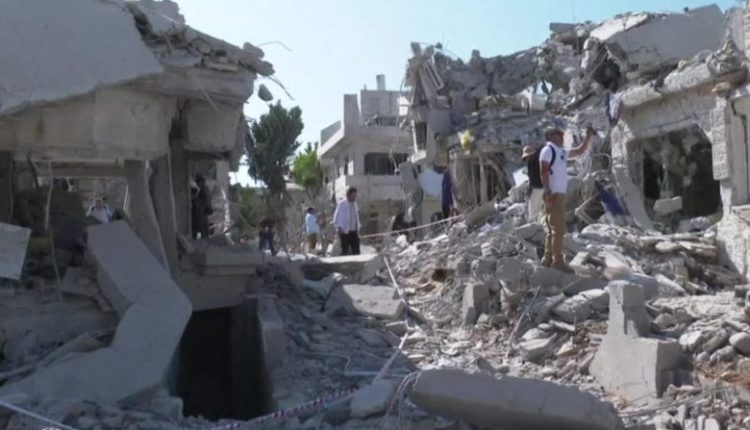Shams: Iran’s Response Shocked the Enemy… Zionist Entity Displays Unprecedented Fragility
In an interview with Al-Manar TV, Dr. Mohammad Shams, director of the “Al-Khandaq” website, stated that the recent negotiation process was nothing more than a U.S. attempt to buy time and lull the international arena in preparation for an American-Zionist aggression against the Islamic Republic. He noted that Tehran entered the negotiations fully aware of their futility, merely to establish proof before the international community and refute any claims that it had initiated the escalation.
Shams explained that the Iranian leadership, headed by Imam Sayyed Ali Khamenei, was fully aware of a plot being coordinated alongside the negotiations aimed at curbing Iran’s role in the region due to its support for the Palestinian cause. Nevertheless, Iran refrained from launching any preemptive strikes, in a deliberate effort to maintain regional stability and avoid a large-scale, devastating war.
He pointed out that American policy—even in diplomacy—is based on deception. However, Iran did not fall into this trap; rather, it prepared for all scenarios, from negotiation to military confrontation. He added that the Islamic Republic has now reached the highest levels of readiness, including preparedness for any direct intervention by the United States, especially amid the escalation in rhetoric from U.S. President Donald Trump.
Shams noted that Trump’s statements regarding the delivery of advanced weapons to the occupying entity, and his affirmation of prior coordination in the aggression, revealed the extent of American involvement. He argued that the U.S. political retreat was due to the shockwave caused by Iran’s response, during which Iranian missiles dominated the skies over the occupied territories and shattered the enemy’s air superiority.
Regarding American threats to target nuclear facilities like Fordow or attempts to overthrow the Iranian regime, Shams stressed that Iran is acting from a position of legitimate self-defense and is fighting to prove it is the victim of aggression, not the aggressor. He emphasized that Tehran is working to expose this truth to the global public, despite the clear complicity of some major powers.
On the ground, Shams observed that Iran has altered its tactics, relying on the element of surprise through waves of missiles and drones launched in broad daylight—indicating a readiness for a prolonged war. In contrast, the Zionist entity has shown fragility in its ability to withstand pressure, amid growing public discontent and waning trust in its leadership, especially after the failure of the official narrative promising a swift resolution.
Shams stressed that Iran is confidently engaged in a long-term battle, with the deep bond between the people and the political and military leadership serving as the cornerstone of this confrontation. He affirmed that the occupation’s attempts to fracture this cohesion—including targeting Iranian state media—have failed.
He concluded by emphasizing that over one hundred million Iranians stand behind their leadership and that the Islamic Republic possesses wise leadership, along with advanced technological and military capabilities that can confound the enemy in every round. He asserted that the Zionist entity will not succeed in breaking Iran, even in the event of direct U.S. military intervention.

